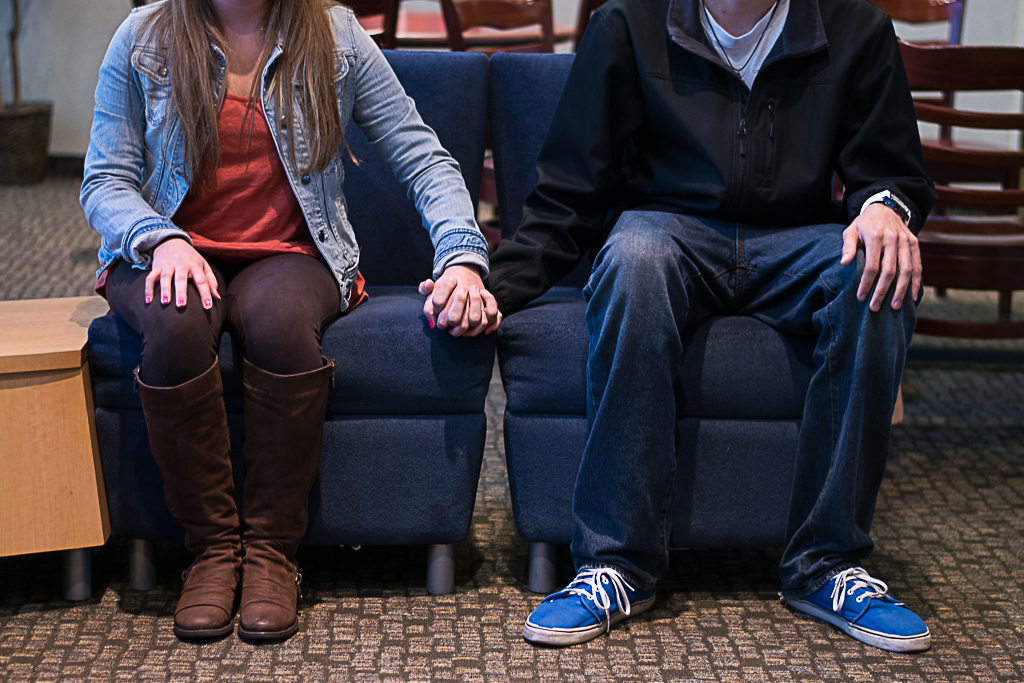
Often it takes no more than a male Biola student and a female Biola student being seen together alone at Eagles Nest to make the whole world explode — apparently they have decided to explore the potential for a relationship. At Biola, it’s easy to buy into the assumption that one date means a pair is going to make babies, get married and become Facebook official, not necessarily in that order. As college students, we have our whole lives ahead of us to consider questions like whether we'll get married, and to whom. The first person of the opposite sex that we have dinner with will not necessarily become our spouse, and that’s OK. We need to open ourselves up to the idea of getting to know different people without the pressure of everyone asking us when we’re getting married.
Students often hold back from casual dating for fear that they will be communicating an undesired message. We don’t want the other person to assume that we have strong feelings where there are none. We are terrified of leading the other person on — only to let them down if we change our minds. This fear paralyzes us whenever the thought of dating someone we are semi-interested in comes up, and the learning and growth that comes from going on dates is thereby halted.
Two unhealthy symptoms can result directly from from a culture that only views dating as an all-or-nothing, serious endeavor: The first is a slew of too-serious, too-soon dating relationships, and the second is the timidity that potential initiators feel when they sense that asking someone on a date will be interpreted as a profession of deep and certain love. The only way to break the cycle of these symptoms at Biola is to change the culture.
The first step is to break the gossip chain. If you refuse to whisper about the guy you saw buying coffee for two at the Coffee Cart, then we can help create a more healthy view of friendships and relationships alike. The second and much more active step is to actually give casual dating a try. Instead of simply complaining about the marriage jokes, perhaps we should work together to change our campus attitude.
Through casual dating, we are able to learn more about ourselves, others and God. Intentionally light-hearted dates with members of the opposite sex will eliminate the constant confusion of the state of your not-really-dating-friendship. Moreover, they can help alleviate the pressure of getting to know that person you find intriguing — you can learn more about them without fear of an implied proposal.
Granted, even though casual dating can be healthy and helpful, it is by no means right for everyone. There are plenty of people who know the person they are interested in well enough to enter into a serious relationship without much of a transitional phase, and others just aren’t interested in casual dating or in dating at all. It is always important to make sure that both parties’ intentions and expectations are clear and compatible. Remember that casual dating is, by nature, casual.
Casual dating does not mean flippant dating. It does not preclude intentionality with regards to your relationship. Instead, it simply allows for the possibility of entering into a relationship even if you aren’t sure where it will go. It involves trusting that even if a relationship doesn’t end in holy matrimony, it can still be fruitful and sanctifying for both people involved. It involves adjusting our mindsets so that a breakup need neither represent failure nor suggest that the relationship never should have been.
The sort of dating we’re advocating is simply a return to what dating is best at: helping two people to understand themselves and one another better, to urge each other towards holiness, and to discern whether they ultimately want to spend their lives together. If we focus exclusively on the last of these aims, we risk pursuing all three of them poorly.







